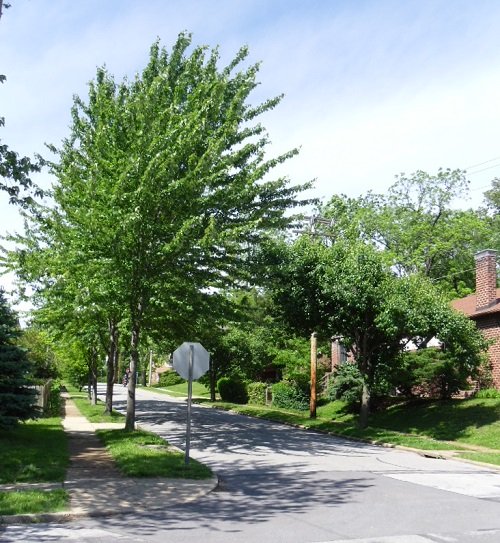| Back to Back Issues Page |
 |
|
Useful Community Plus May 20, 2021 |
In This Issue: Does Zoning Always Exclude People? and More
May, 2021
Visit us at the Useful Community Development Website 
Are America's tree-lined streets at fault for soaring housing prices and racial inequities? See feature story below. Just a few quick reminders about items of seasonal interest on our website. Here are some timely articles: -Our ebook about starting a neighborhood association 
Zoning is being blamed for various social ills right now, so we thought we would explore this a bit. Some point out that maybe 75 percent of residential land in the U.S. is zoned for single-family residential development only. (If you want more data and illustration, see this New York Times article.) Others may describe the problem as exclusionary zoning, in which multi-family residences, duplexes, and small lots are effectively prohibited in many zoning districts. The problem here is that not everyone can afford a single-family home on a large lot. So it has been affordable housing advocates who are carrying this banner. Some commentators and housing activists want to reverse the trend. Indeed some California cities, Oregon, and Minneapolis have acted to outlaw almost all single-family zoning. Another strand of anti-zoning rhetoric is stirring in civil rights and fair housing circles. Typical is this quote from Lydia Edwards, a City Councilor in Boston: "I think what I have learned and what I've seen through the research, especially in Boston is that zoning has been one of the great undoers of civil rights and fair housing goals. It has been how the city and local municipalities avoid actually having to integrate and build inclusive communities." ("The Making of Boston's AFFH Ordinance--A Brief Oral History," Poverty and Race, vol. 30, #1, Jan.-April 2021, p. 3) Wikipedia today even tells me that single-family zoning was "created" as a way to keep minorities out of white neighborhoods. Time out here. We don't disagree with either of these critiques of the consequences of some zoning ordinances. No doubt there have been many bad motivations over the course of decades. But there also have been many well-meaning people who are caught up in this history. We don't think every single-family district results from discriminatory intent. It's silly to blame zoning the concept while saying nothing about the "zoners," the people who request, recommend, or vote on the zoning regulations and map. Let's get those people thinking harder and help them be less afraid of a major reappraisal of their zoning policies and practices. We agree that zoning should be much better utilized to meet social goals. It's absolutely true that I've never yet sat in a zoning meeting and heard anyone discuss the Affirmatively Furthering Fair Housing rule. That doesn't necessarily mean it couldn't happen though. Here's what we suggest. Planning commissions, interested citizens, and professionals should take a long look at how their local zoning affects: 1. Housing markets and prices, 2. The quality and quantity of what is built compared to what residents need and can afford, 3. The perpetuation of racial segregation, lack of safe pedestrian conditions, failure of markets to provide quality goods and services to all neighborhoods, and 4. Other local downfalls of equity or community building. We'll be writing more about how zoning could be adapted to heal instead of exclude on our website in the next month or two. Meanwhile you might start with our inclusionary zoning page. (Or if you're lost in this discussion, you may need to start with the zoning regulations page.) Let's not throw out all zoning or give up on all single-family neighborhoods. Neither is a good solution.
As usual, we also answered some website visitors' questions: Can a city deviate from its future land use map? Existing barn now being called violation of deed restrictions Special assessments for capital expenditures in an HOA HOA options when an owner bought the lot next door to build a garage
We will be back on a Thursday in June. Feel free to reply to this newsletter with comments. If you are asking a question you would like answered, please use the public-facing community development questions page on the website. |
| Back to Back Issues Page |
